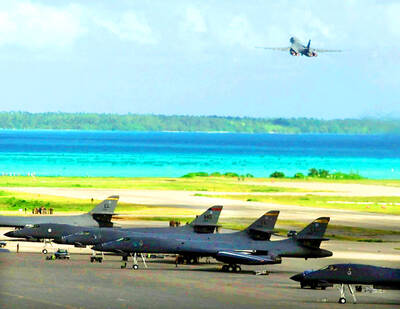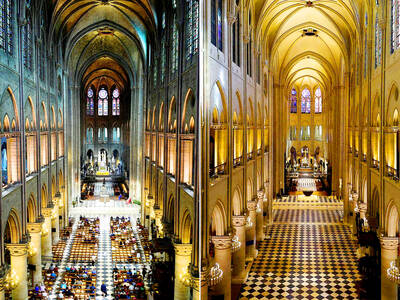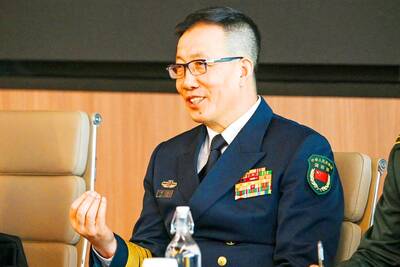Bulgaria’s Turkish minority celebrates the 20th anniversary this week of an uprising that eventually helped topple the country’s communist regime.
On May 19, 1989, Bulgaria’s ethnic Turks — who make up 10 percent of the total population — started a wave of spontaneous protests against the forced assimilatory policies of the communist regime.
Beginning at a funeral in the village of Dzhebel in the southern Rhodope mountains, the protests spread within a week to the south and northeast of the country, regions with large Turkish populations.
In response, Sofia embarked on a policy of ethnic cleansing that left it so isolated internationally — even within the Soviet bloc — that communist dictator Todor Zhivkov was ousted.
Nowadays, the Turkish minority party, the Movement for Rights and Freedoms, is a vital force in Bulgarian politics and has acted as a junior coalition partner in all of the country’s governments since 2001.
But in communist times, the Turks were an oppressed minority, and in 1984, the regime adopted a law forcing them to change their Turkish names to Bulgarian ones, banning their language and outlawing Muslim customs.
“The alternative to changing our names was deportation,” said Reshad Uzturk, a 46-year-old driver from Dzhebel.
And the repressions did not stop there, he said.
“Anyone who spoke Turkish in the street was fined ‘for using incomprehensible language,’ circumcised baby boys were not admitted to kindergarten,” he said.
A 70-year-old woman, who asked not be named, said police tore up their shalwar, or loose trousers, “and made us wear skirts. I was so ashamed I could have died.”
In the communist jargon of the time, the process was referred to as one of national “revival.”
According to the official propaganda, the Turks were actually the descendants of Bulgarians who had been forced to convert to Islam under Turkish rule between the 14th and 19th centuries, but had now forgotten their true origins.
As a Western-oriented country, modern-day Turkey was seen as the arch enemy, just waiting to get its hands on Bulgarian territory.
And the authorities would not tolerate any form of resistance to their national “revival” policies.
In the uprisings of May 1989, nine ethnic Turks were killed and dozens more injured, researcher Mihail Ivanov said.
“The regime was worried about the growth of this minority and responded to the revolts with ethnic cleansing,” said Antonina Zhelyazkova, head of the Sofia-based Center for Minority Studies.
“Leaders of protest movements and thousands of intellectuals were expelled to Turkey. Ordinary people were terrified and followed,” Zhelyazkova said.
On May 29, 1989, communist leader Zhivkov demanded Turkey open its border to Muslims wanting to leave Bulgaria.
The Bulgarian secret service’s archives indicate that some 370,000 Bulgarians of Turkish origin crossed the border between May and November 1989, when Turkey closed it again to stem the influx, Ivanov said.
Only around 155,000 of them later returned.

CHAGOS ISLANDS: Recently elected Mauritian Prime Minister Navin Ramgoolam told lawmakers that the contents of negotiations are ‘unknown’ to the government Mauritius’ new prime minister ordered an independent review of a deal with the UK involving a strategically important US-UK military base in the Indian Ocean, placing the agreement under fresh scrutiny. Under a pact signed last month, the UK ceded sovereignty of the Chagos archipelago to Mauritius, while retaining control of Diego Garcia — the island where the base is situated. The deal was signed by then-Mauritian prime minister Pravind Jugnauth and British Prime Minister Keir Starmer on Oct. 3 — a month before elections in Mauritius in which Navin Ramgoolam became premier. “I have asked for an independent review of the

France on Friday showed off to the world the gleaming restored interior of Notre-Dame cathedral, a week before the 850-year-old medieval edifice reopens following painstaking restoration after the devastating 2019 fire. French President Emmanuel Macron conducted an inspection of the restoration, broadcast live on television, saying workers had done the “impossible” by healing a “national wound” after the fire on April 19, 2019. While every effort has been made to remain faithful to the original look of the cathedral, an international team of designers and architects have created a luminous space that has an immediate impact on the visitor. The floor shimmers and

THIRD IN A ROW? An expert said if the report of a probe into the defense official is true, people would naturally ask if it would erode morale in the military Chinese Minister of National Defense Dong Jun (董軍) has been placed under investigation for corruption, a report said yesterday, the latest official implicated in a crackdown on graft in the country’s military. Citing current and former US officials familiar with the situation, British newspaper the Financial Times said that the investigation into Dong was part of a broader probe into military corruption. Neither the Chinese Ministry of Foreign Affairs nor the Chinese embassy in Washington replied to a request for confirmation yesterday. If confirmed, Dong would be the third Chinese defense minister in a row to fall under investigation for corruption. A former navy

‘VIOLATIONS OF DISCIPLINE’: Miao Hua has come up through the political department in the military and he was already fairly senior before Xi Jinping came to power in 2012 A member of China’s powerful Central Military Commission has been suspended and put under investigation, the Chinese Ministry of National Defense said on Thursday. Miao Hua (苗華) was director of the political work department on the commission, which oversees the People’s Liberation Army (PLA), the world’s largest standing military. He was one of five members of the commission in addition to its leader, Chinese President Xi Jinping (習近平). Ministry spokesman Colonel Wu Qian (吳謙) said Miao is under investigation for “serious violations of discipline,” which usually alludes to corruption. It is the third recent major shakeup for China’s defense establishment. China in June